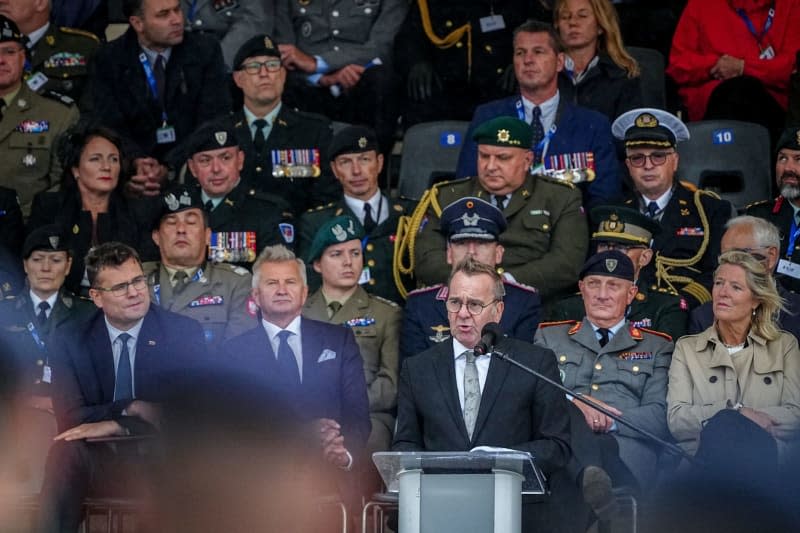German Defence Minister Boris Pistorius issued a stark warning about the dangers of Russian rearmament on Thursday, calling the Kremlin’s assault on Ukraine a “wake-up call” to the West about its wider intentions.
“We are witnessing how Russia is rapidly ramping up its weapons production and dramatically building up its armed forces,” Pistorius said in a speech before the Lithuanian parliament in Vilnius.
“All of this leaves no doubt: For Russia, for [Russian President Vladimir] Putin’s Russia, Ukraine is only the beginning.”
For Putin, the free and democratic way of life is the real enemy, said Pistorius, whose speech was applauded at several points. “Ukraine was a wake-up call, perhaps the last one we will get.”
At the same time, according to the minister, the leadership in Moscow is attempting to undermine social cohesion in the EU and NATO member states, using hybrid means like cyber attacks.
He also assured: “The German armed forces are ready to become a central pillar of conventional deterrence and defence in Europe.” In this context, he highlighted the role as a hub to quickly move troops from the Atlantic to NATO’s eastern flank.
Pistorius also said he is working to permanently raise German defence spending above 2% of gross domestic product – the NATO target. All partners in the 32-country alliance should do this, he said.
The German defence chief also addressed his plans to introduce a new model of military service. Times have changed, he said. “Germany must introduce a new form of military service. This is the only way the armed forces can survive in the event of war.”
In response to the growing threat from Russia, the German government has promised NATO partner Lithuania that it will permanently station a combat-ready and autonomous combat unit there. This brigade is scheduled to be operational by 2027.
In Lithuania, German soldiers would soon be standing “shoulder to shoulder with the Lithuanian armed forces, ready to defend the country,” said Pistorius.
A permanent presence of up to 5,000 soldiers is planned, with their permanent locations to be the small communities of Rūdninkai and Rukla in Lithuania.
The brigade’s formation is a direct response to Russia’s full-scale invasion of Ukraine in 2022 and reflects the changed security situation in Europe.
In mid-September, Putin increased the number of troops in his armed forces for the third time since the start of the war.
According to a presidential decree, the number of military personnel should be 2.38 million from December onwards, including 1.5 million soldiers.
Only last December, Putin increased the target number of troops in the armed forces to 2.2 million, including 1.33 million soldiers.
At the start of the Ukraine war, the number of soldiers in Russia was just over one million.











